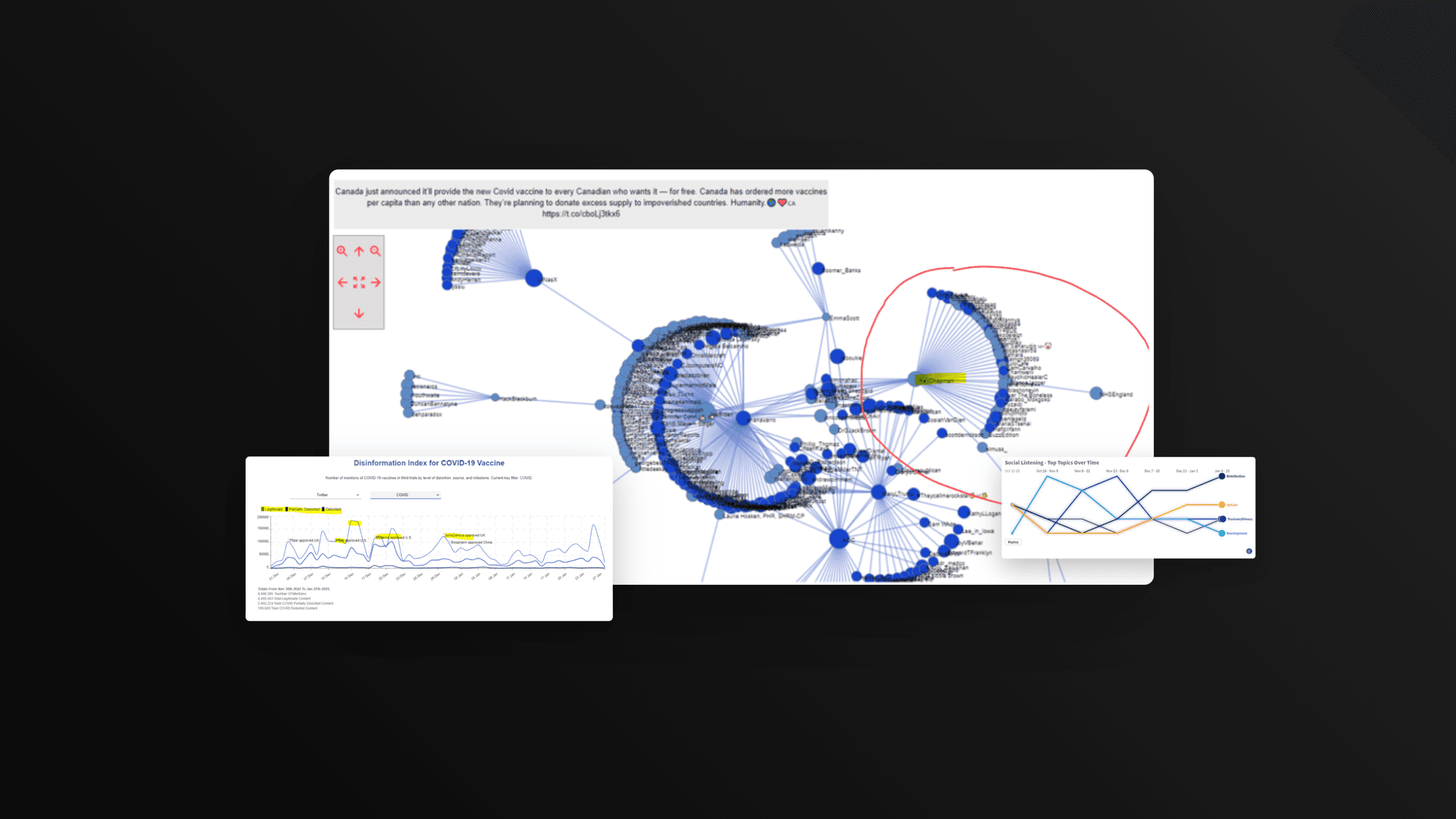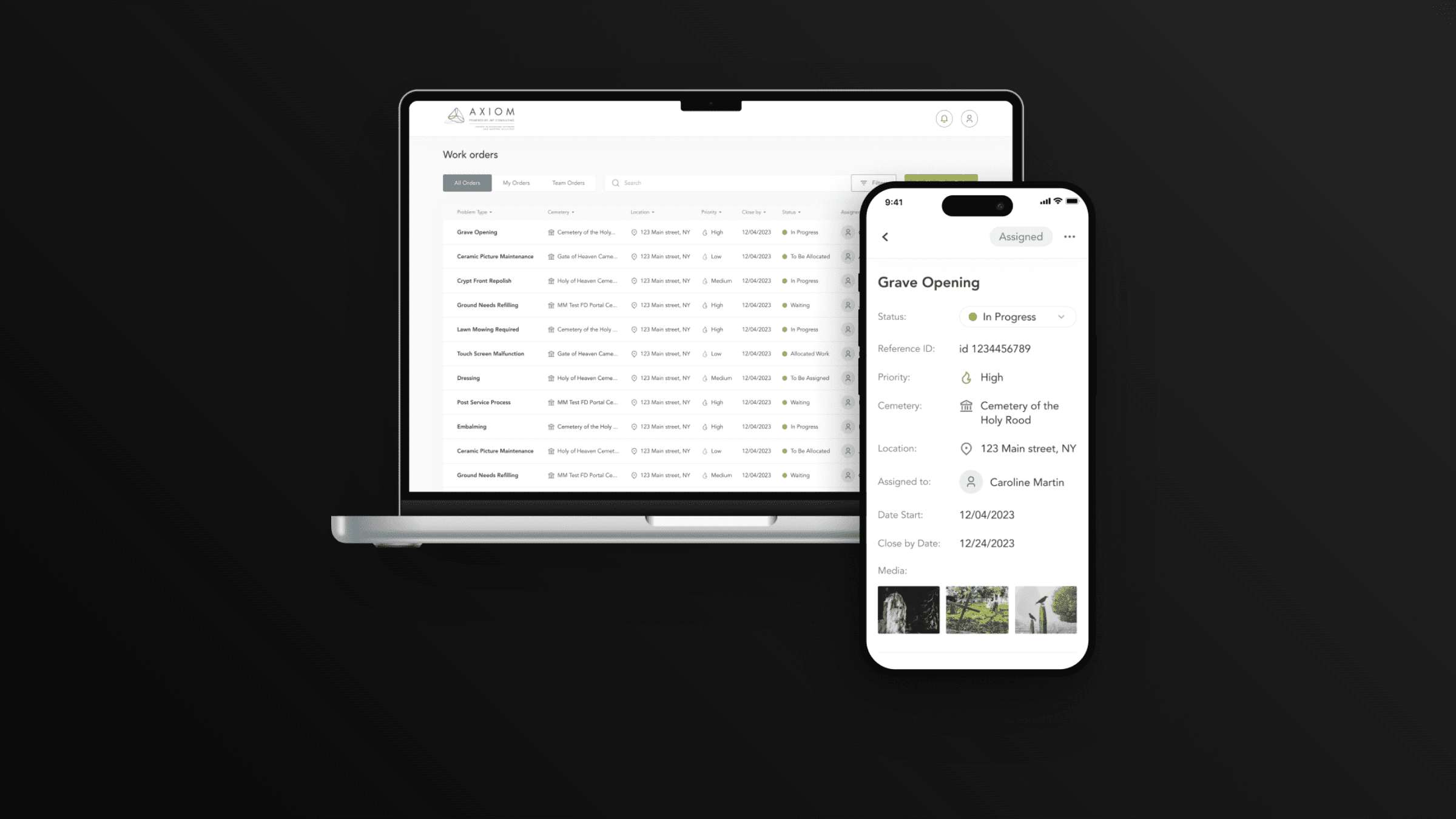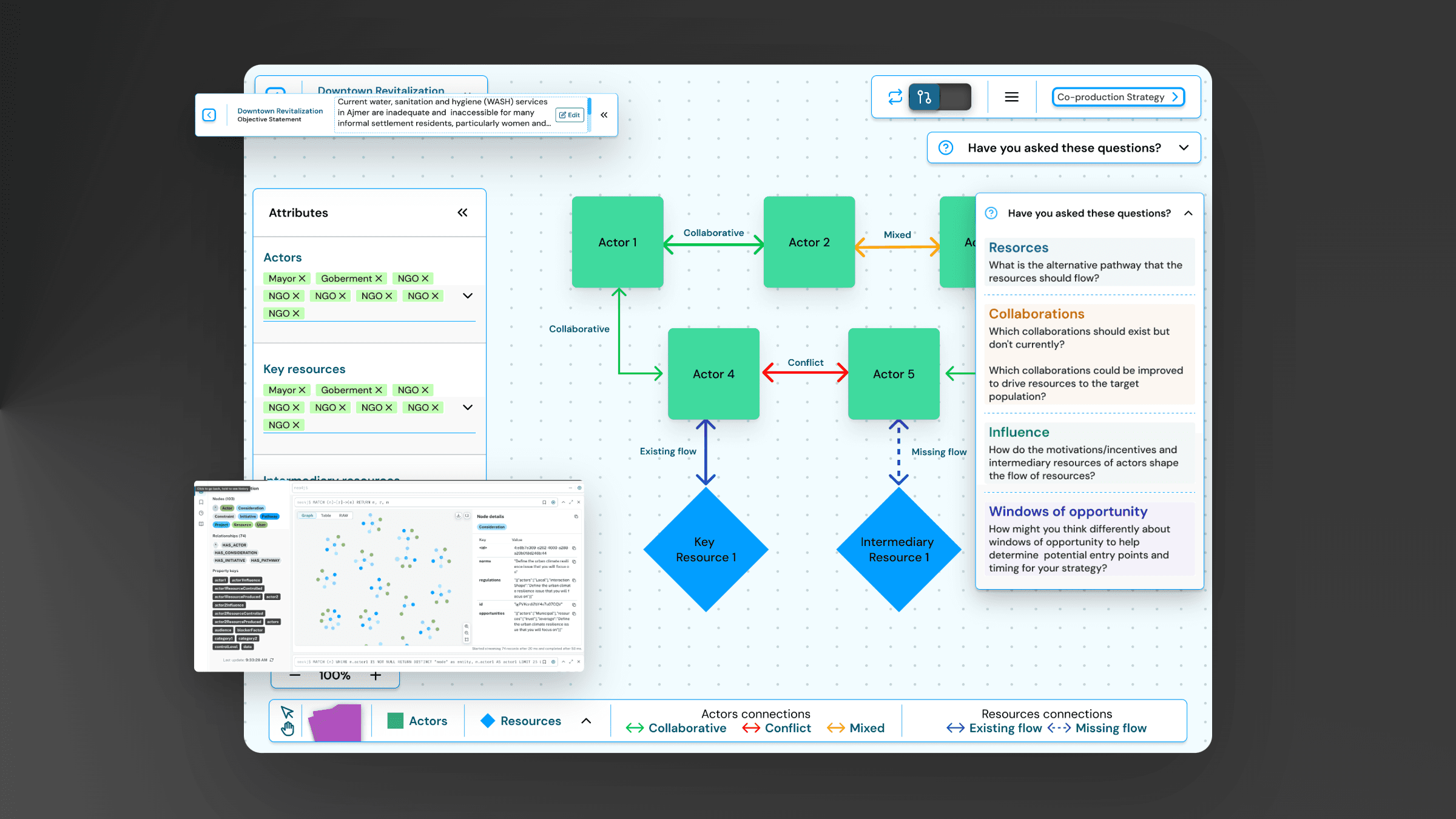We developed SOLIS, an AI-powered social listening tool, to track and analyze COVID-19 vaccine disinformation in real time, uncovering key influencers and topics while enabling strategic communication interventions.
The Challenge: Disinformation Threatens Public Health
In the age of social media, disinformation can spread faster than truth, undermining public health efforts and eroding trust in institutions. During the COVID-19 vaccine rollout, disinformation spiked, fueled by conspiracy theories, political bias, and mistrust of science. The challenge was twofold:
Scale and Complexity of Data: Millions of posts, tweets, and videos needed to be analyzed across platforms like Twitter, Reddit, and YouTube.
Dynamic Nature of Disinformation: Misinformation evolved with news events, making it difficult to track and counteract.
To address this, we co-built SOLIS (Social Listening System), a machine-learning tool capable of parsing vast amounts of social media data, identifying disinformation trends, and surfacing actionable insights.
Understanding the Audience and Objectives
We worked closely with social scientists, public health experts, and program managers to define clear objectives and user needs:
Program Managers: Needed tools to track disinformation trends and influencers in real time.
Researchers and Analysts: Sought insights into the sources and spread of vaccine-related disinformation.
Policy Makers: Required data to inform public health campaigns and counter misinformation.
Our solution aimed to:
Detect disinformation as it emerged.
Classify and analyze content by legitimacy.
Identify key influencers and echo chambers.
Our Solution: SOLIS
We co-developed and refined SOLIS into a cutting-edge social listening platform:
Key Features:
AI-Powered Analysis:
Machine learning classified social media posts as factual, partially factual, or disinformation.
Algorithms were trained on real-world data to handle nuanced topics like vaccine efficacy and safety.
Real-Time Monitoring:
Data scrapers continuously pulled millions of posts from Twitter, Reddit, and YouTube.
Visual dashboards displayed trends, influencers, and topics in real time.
Network Analysis:
Mapped relationships between key influencers to identify echo chambers and moderate voices.
Highlighted pathways of disinformation spread for targeted interventions.
Cultural Relevance:
Adapted to regional contexts, incorporating local languages and slang to improve data accuracy.
Actionable Insights:
Identified "pre-bunking" opportunities, like Pfizer's early communication campaigns, to get ahead of disinformation spikes.
Results That Made an Impact
SOLIS provided valuable insights into disinformation trends and enabled targeted countermeasures:
Disinformation Patterns:
Identified spikes in disinformation aligned with major news events, such as vaccine trial announcements.
Revealed platforms with the most disinformation (e.g., YouTube) and those with the most engaged debate (e.g., Reddit).
Influencer Identification:
Mapped key influencers spreading both factual and false information, helping to prioritize outreach efforts.
Improved Communication Campaigns:
Data revealed the effectiveness of early messaging strategies, informing future public health campaigns.
Key Metrics:
Volume of Data Analyzed: Over 24 million tweets, 2,900 Reddit posts, and thousands of YouTube comments processed.
Algorithm Accuracy: Achieved 80% accuracy in classifying disinformation.
Time to Insight: Enabled real-time analysis and reporting, drastically reducing response times.
Lessons Learned and Future Applications
Developing SOLIS was as much a learning process as it was a technical achievement:
Refining Queries:
Early iterations struggled with irrelevant data; refining search terms improved focus and accuracy.
Human-AI Collaboration:
Combining social science expertise with machine learning ensured meaningful insights.
Expanding Use Cases:
SOLIS has applications beyond vaccines, such as combating disinformation in political processes and addressing hate speech.





